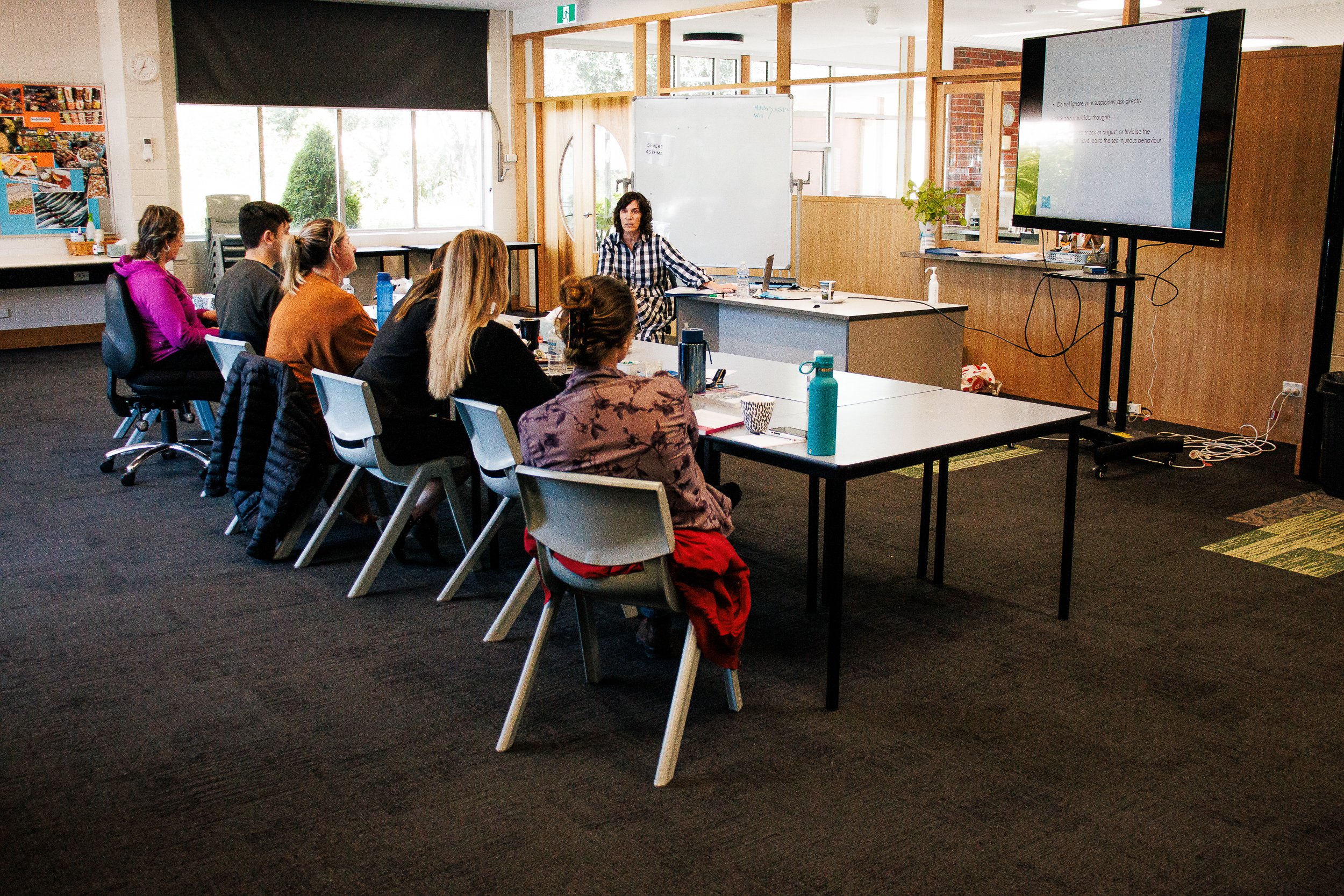
Care and Wellbeing
Pastoral Care and Student Wellbeing are at the heart of what we do
As a Catholic College our staff are committed to providing a positive and safe learning environment for students, which maximises their academic and social growth.
Our Pastoral care is based on a deep respect for the uniqueness of each of our students and considers the needs of the whole student. In addition to love, we value respect, growth, connection and courage. We place a strong emphasis on wellbeing and aim to ensure that students’ psychological, social, emotional, and spiritual needs are met by fostering an environment that is welcoming, inclusive and safe, and where students are respected members of a larger community.
The Pastoral Team consists of the Principal, Deputy Principals, Year Level Coordinators, Home room teachers, Counsellors and Learning Support.
Home room and Year Level Coordinators
Home rooms meet three times per week and students remain with the same Home room for their two years at the College. This enables a strong relationship to develop between student, Home room teachers and parents/carers. Matters such as general wellbeing, school absences, general behaviour concerns and academic progress are managed initially by the student’s Homeroom Teacher, who is the primary point of contact.
Home room Teachers are supported by Year Level Coordinators who work closely with all members of the Pastoral Team to case manage, support and ensure the overall wellbeing of students.
College Counsellors
Help seeking is encouraged at Guilford Young College and professional counselling is available to support students through any challenges they may face. The counselling service is an integral part of our Pastoral structure. Services are provided by fully qualified, and experienced psychologists, social workers, and counsellors. Services are free and confidential and have a focus on positive outcomes. Counsellors also regularly consult with parents and staff in relation to student wellbeing and welcome contact from parents.
Counselling can provide support for the following:
School life:
Engagement with school
Motivation
Organisation and time management
Wellbeing:
Mental Health concerns
Stress and developing coping strategies
Relationships
Crisis support
Advice about, and referral to, support services available in the community
Restorative Practice
At Guilford Young College we take a restorative approach to creating a safe, supportive school environment. Restorative Practice is a way of being, thinking, interacting, teaching and learning – with relationships at the centre of all we do, every day. It brings together people affected by harm in a structured and facilitated way, to talk about what happened, how they were impacted and how the harm can be repaired or addressed.
Using this framework helps our students to build the capacity to live in, understand and embrace the real world, with all its contradictions and complexities.


